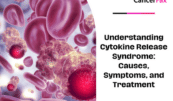Role of paramedics in the success of CAR T Cell therapy
Patients undergoing outpatient CAR T-cell therapy for cancer must be cared for by a multidisciplinary team that includes nurse coordinators, according to a poster presented at the 49th Annual Oncology Nursing Society Conference.
Outpatient CAR T-cell therapy was the focus of this presentation, which sought to clarify the function of the nurse navigator. Right now, they’re an invaluable resource for assisting both the patient and caregiver during the course of treatment. To ensure that all sent information is efficient and current, they place zero emphasis on the education component.
It may be advantageous for treatment centers and patients alike to conduct CAR T-cell therapy in outpatient settings. Patients can lower their financial toxicity and the risk of hospital-acquired illnesses by receiving care in an outpatient setting. During treatment, the Stem Cell Transplant and Cellular Therapy Nurse Coordinator plays an important role at Atrium Health Levine Cancer by helping to transmit information from doctors to patients and their families.
Patients undergoing CAR T-cell therapy are more likely to experience adverse events (AEs), particularly immune effector cell-associated neurotoxicity syndrome and cytokine release syndrome. Nurses often rely on patient reporting to determine the start of these adverse events and to administer urgent treatments, ensuring that patients receive timely and appropriate care. What to do and how to report symptoms are part of the instructions that nurse navigators give.
You may like to read: CAR T Cell therapy in China
A nurse navigator’s responsibilities are multifaceted. Clinicians and hospital administrators can use their help to establish protocols for the in-person and remote monitoring of patients getting CAR T infusions. To further ensure the safety of CAR T products, they also contribute to protocols for post-infusion patient monitoring and the identification of adverse events. Further, they strive to inform both patients and caregivers about the signs of adverse events (AEs) and how to report them. Infection prevention, medication adherence, vital sign monitoring, and appointment compliance are further areas of focus.
Team members and the nurse coordinator get together on a frequent basis to plan and execute novel approaches to enhancing SOPs. It was pointed out that these processes need frequent reviews to guarantee safety and that communication is efficient in reducing immune-related adverse events. It is important to remember to regularly assess the patient’s education to ensure they are equipped for positive outcomes.
When a patient experiences a non-life-threatening adverse event (AE) after hours, the presentation gave an example pathway on how to respond. Whether it was noted during a visit or not determines how personnel should respond. Next, the hematology/oncology fellow is paged, who reports the results to the attending and decides what to do next.
You may like to read: CAR T Cell therapy for multiple myeloma
Outpatient CAR T-cell treatment requires a comprehensive approach. The authors, Melissa Yountz, BSN, RN, BMTCN, and Rebecca Jennings, MSN, RN, BMTCN, OCN, came to the conclusion that the nurse coordinator plays a crucial role in ensuring the safety of both the patient and caregiver throughout the process. “The nurse coordinator guarantees that the education given to the caregiver and patient is accurate and up-to-date because of the integral role she plays in process development and education.”
Atrium Health Wake Forest Baptist, Yountz coordinates cellular therapy and stem cell transplants as an oncology nurse. Jennings’s responsibilities at Atrium Health Wake Forest Baptist is overseeing the cellular therapy and stem cell transplant programs.
Susan Hau is a distinguished researcher in the field of cancer cell therapy, with a particular focus on T cell-based approaches and cancer vaccines. Her work spans several innovative treatment modalities, including CAR T-cell therapy, TIL (Tumor-Infiltrating Lymphocyte) therapy, and NK (Natural Killer) cell therapy.
Hau's expertise lies in cancer cell biology, where she has made significant contributions to understanding the complex interactions between immune cells and tumors.
Her research aims to enhance the efficacy of immunotherapies by manipulating the tumor microenvironment and exploring novel ways to activate and direct immune responses against cancer cells.
Throughout her career, Hau has collaborated with leading professors and researchers in the field of cancer treatment, both in the United States and China.
These international experiences have broadened her perspective and contributed to her innovative approach to cancer therapy development.
Hau's work is particularly focused on addressing the challenges of treating advanced and metastatic cancers. She has been involved in clinical trials evaluating the safety and efficacy of various immunotherapy approaches, including the promising Gamma Delta T cell therapy.
- Comments Closed
- April 29th, 2024






Cancer care coordination, CAR-T infusion specialists, CAR-T therapy support staff, CAR-T treatment monitoring, Cell therapy nursing care, Immune effector cell therapy team, Oncology paramedic roles, Paramedics in immunotherapy
CancerFax is the most trusted online platform dedicated to connecting individuals facing advanced-stage cancer with groundbreaking cell therapies.
Send your medical reports and get a free analysis.
🌟 Join us in the fight against cancer! 🌟
Привет,
CancerFax — это самая надежная онлайн-платформа, призванная предоставить людям, столкнувшимся с раком на поздних стадиях, доступ к революционным клеточным методам лечения.
Отправьте свои медицинские заключения и получите бесплатный анализ.
🌟 Присоединяйтесь к нам в борьбе с раком! 🌟